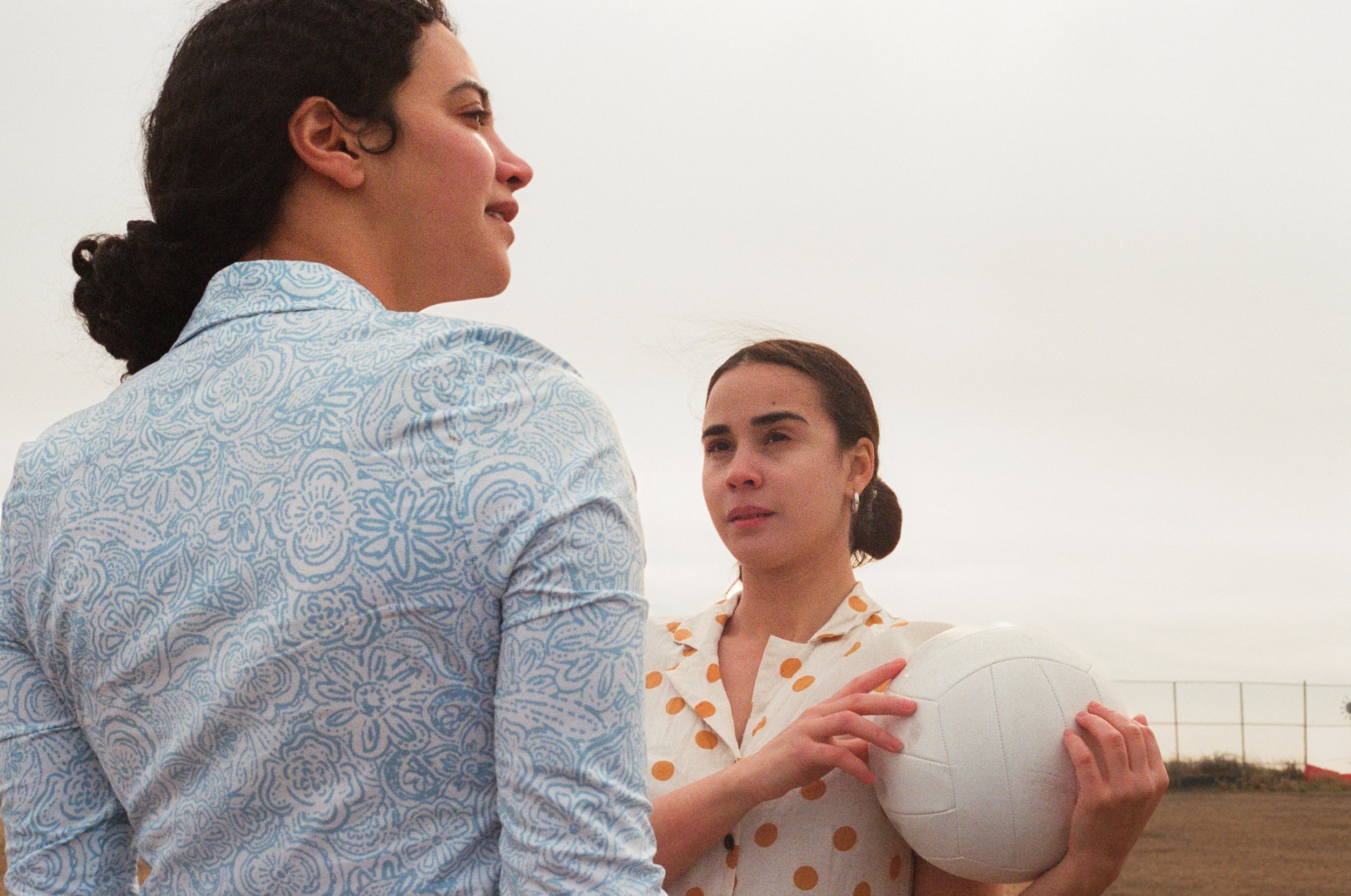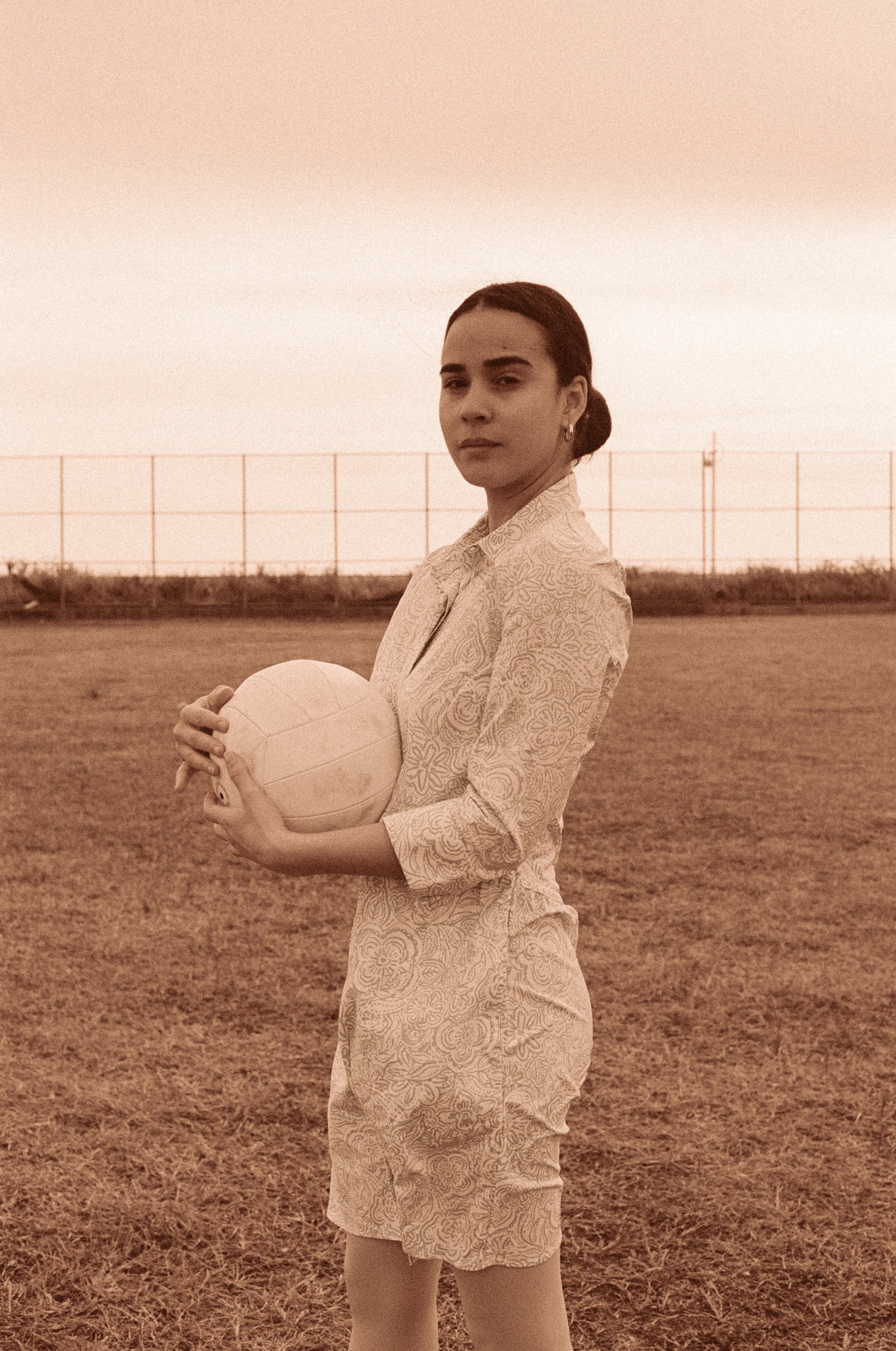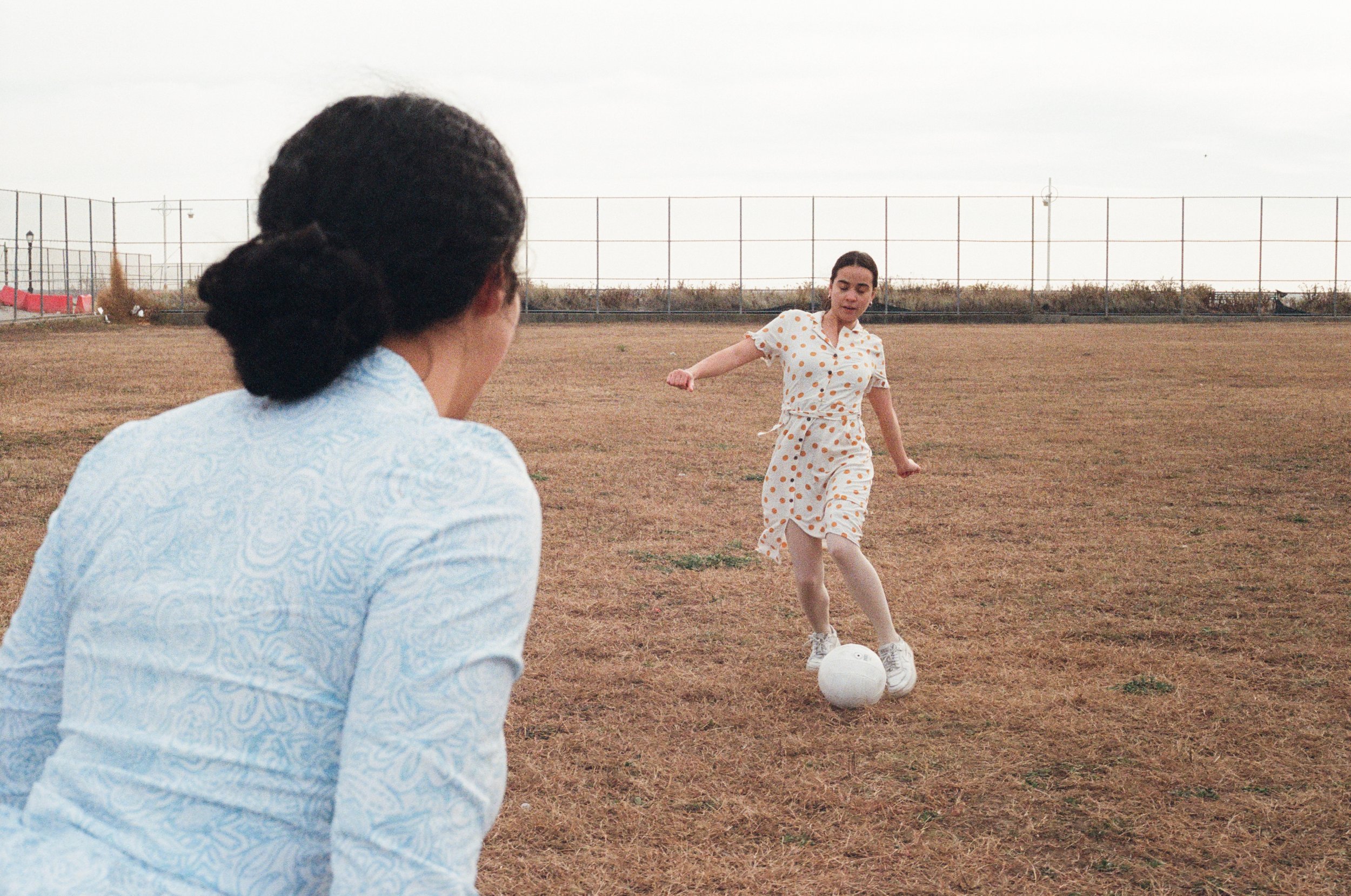Logline:
In 1977 Morocco, a young woman coaches the town's first girls' soccer team, challenging tradition and inspiring her players to dream beyond their limits.
What is the film about?
Lioness is best described as a Moroccan A League of Their Own meets Bend It Like Beckham.
In 1977, the film’s protagonist, Fatiha, travels to Hoceima, a Berber town in northern Morocco, to teach at the town’s first girls’ soccer team, which is tied to the newly opened girls' trade school. Fatiha is trying to escape a past she wants to leave behind and find new fulfillment in her mission.
The team is underfunded and looked down upon by the local community. However, the tween and teen girls who join are eager and scrappy, determined to prove themselves.
As time goes on, the adversity they face from their families catches up with them. But despite the challenges, there is hope for the future of girls' soccer in Morocco.
Why now?
Lioness is more than just a nostalgic, sports-driven story—it’s a timely, important reflection on the global movement toward gender equality, especially in sports. As we’ve seen in recent years, women’s soccer has erupted onto the global stage, with increasing visibility, recognition, and support for female athletes. The Moroccan Women’s National Team's historic qualification for the 2023 FIFA Women’s World Cup is just one example of this seismic shift, showing the world that women’s soccer is not only growing in visibility but also challenging cultural and societal norms.
The public is already captivated by these historic achievements, with female athletes breaking barriers and setting new standards. Lioness speaks directly to that energy, telling the untold stories of the generations before, whose determination and passion laid the groundwork for the success we see today. It highlights the struggles and resilience of women in Morocco—where cultural and societal expectations were often at odds with the idea of women playing sports.
In addition, the timing is critical because we are at a pivotal moment for women’s sports globally. With the attention on Moroccan soccer in 2023, this is the perfect moment to showcase the roots of the sport in Morocco and the women who fought for it long before it gained international recognition. Lioness offers a unique lens on the intersection of sports, culture, and gender at a time when the world is looking to elevate female athletes and embrace their stories.
By shedding light on the early pioneers of women’s soccer in Morocco, Lioness not only highlights an important piece of history but also invites audiences to consider how far we’ve come—and how far we still have to go. It's a film that encourages the world to celebrate not just the athletes of today, but those whose perseverance paved the way for future generations.
Now is the time for stories like Lioness to be told—because the world is ready for them.
What inspired me to write this story?
One summer afternoon in 2023, my mother shared a story with me in our backyard. It was just one of the incredible experiences she’s told me about over the years, but this time, she went into far more detail than usual. By the end of her story, I knew I had to share it with the world.
I’ve always seen the photo of her with her girls' soccer team from the 1970s around the house, but I never fully connected with it until I understood the context behind it.
2023 was the year the Moroccan Women’s Soccer Team qualified for the FIFA Women’s World Cup, making history as the first Arab country to do so. Just a year prior, in 2022, the Moroccan Men’s Team reached the semi-finals of the World Cup, becoming the first Arab and African country to achieve that feat. Moroccan soccer pride was alive and buzzing around me—and within me—during that time.




